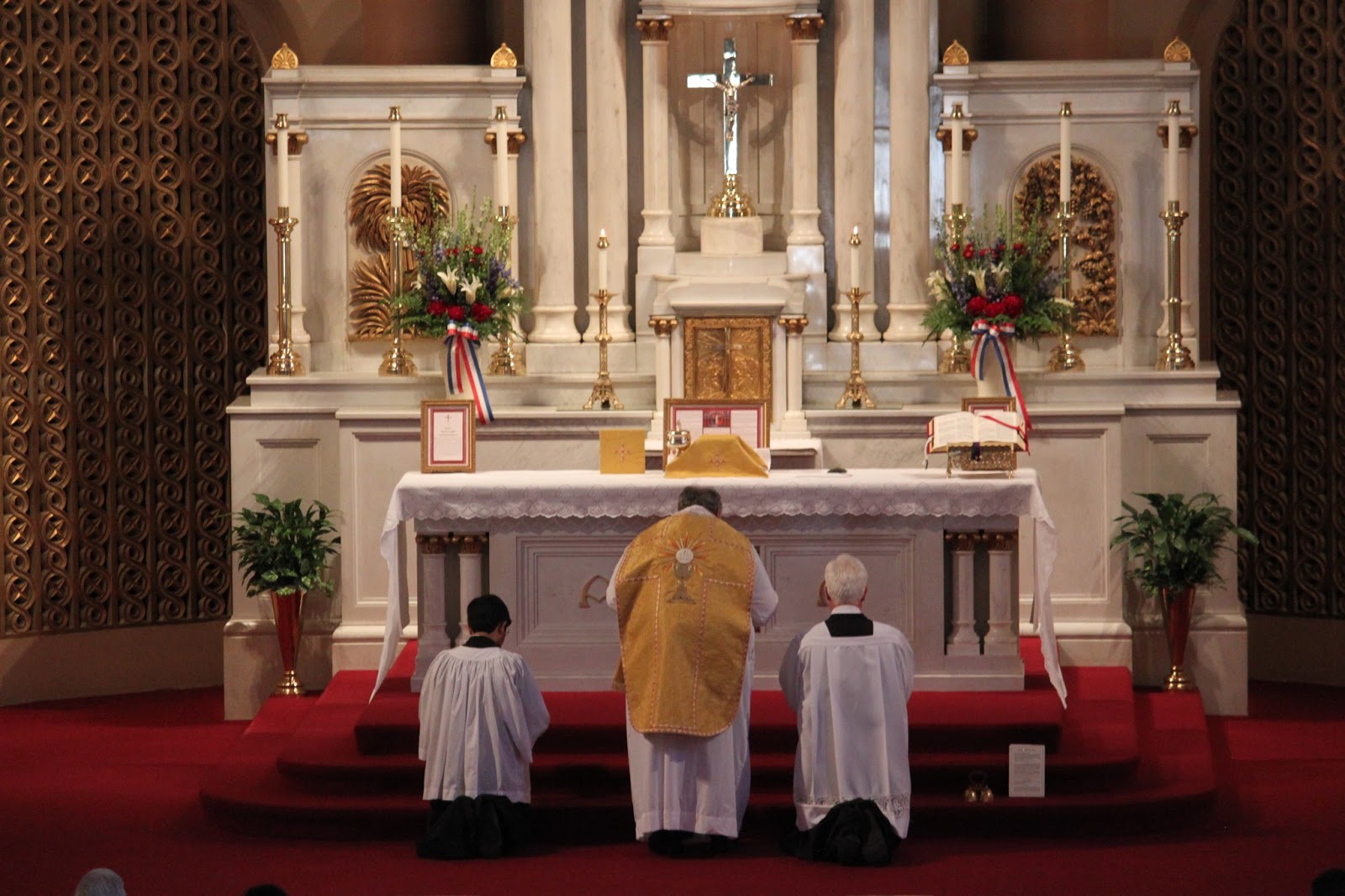By Tom Piatak
Pope Francis shocked many Catholics when he issued a motu proprio — a document creating laws governing Church life — called Traditionis Custodes on July 16. The subject of the motu proprio is what is commonly called the traditional Latin Mass, namely the version of the Latin Mass that was in effect when the Second Vatican Council began in 1962. After Vatican II, the Latin Mass was replaced as the normal liturgy of the Roman Rite of the Catholic Church by a new Mass published in a plethora of languages. This new Mass, sometimes called the Novus Ordo, is the Mass attended by the vast majority of Catholics around the world.
Pope Benedict XVI issued a motu proprio on the same subject just 14 years ago, Summorum Pontificum. Few observers thought Francis would change Summorum Pontificum while Benedict XVI was still alive, because many regarded its publication as the signature moment of Benedict’s pontificate. Benedict XVI’s motu proprio gave Catholic priests the right to say the Latin Mass. This led to a revival of interest in the Latin Mass, particularly in the United States, the United Kingdom, and France, and on the eve of Traditionis Custodes nearly 700 Catholic churches in the United States were offering the Latin Mass.
To say that Traditionis Custodes reversed Summorum Pontificum is an enormous understatement. In the letter to accompany Summorum Pontificum, Benedict wrote that “what earlier generations held as sacred, remains sacred and great for us too, and it cannot be all of a sudden entirely forbidden or even considered harmful.” By contrast, Francis’ motu proprio and accompanying letter evince a desire to do to the Latin Mass what the Romans did to Carthage. Effective immediately, no priest can offer the Latin Mass unless his bishop allows him to, no Catholic parish can offer the Latin Mass, the Latin Mass is to be limited to settings where it is currently being offered and no new sites will be allowed, and no priest ordained after the motu proprio will be allowed to learn how to say the Latin Mass unless the Vatican approves. The stated reason for continuing to allow the Latin Mass in limited circumstances is to prepare Catholics who had been attending it to begin attending the Novus Ordo. The only future Francis sees for the Latin Mass is extinction.
Francis grounded his edict in the need to maintain Church unity, and it is true that some of those attending the Latin Mass routinely disparage the Novus Ordo and view those who attend it with an ill-disguised contempt.
But such vocal malcontents are not representative of most Latin Mass attendees. In my experience as an occasional attendee, people come to the Latin Mass looking for beauty and reverence in worship, not angry polemics. And, by and large, that is what they find.
Pope Francis’ desire to close churches filled with children, attracting converts, and producing vocations to the priesthood and religious life is very difficult to understand in 2021, when steady, even rapid decline characterizes Catholic life in so many other places. It is also hard to see why Francis wants to forbid parish churches from hosting the Latin Mass, since many poor parishes in decaying neighborhoods have been able to avoid closing by hosting the Latin Mass.

Francis’ dim view of Catholic traditionalists stands in sharp contrast to his irenic view of Catholics on the left who challenge Church teaching. The German bishops are in the midst of a synodal process designed to change Church teaching in Germany. More recently, dozens of German priests openly blessed homosexual couples. But those bishops and priests have yet to face censure from Francis, much less the type of censure now felt by Catholics who prefer the Latin Mass.
It is in fact hard to think of any group Francis dislikes more than conservative Catholics. Francis’ edict will have no effect on Catholics who attend the Latin Mass at chapels of the Society of St. Pius X and similar venues. However, it will devastate those who attend Latin Masses offered by priests in communion with the Pope. Some of those diocesan Latin Masses have been in existence for 30 years, and many of the priests offering them have made substantial sacrifices to be in a position to do so.
But Francis’ edict will even affect Catholics who never go to the Latin Mass. Summorum Pontificum justly restored to all Catholics something we should never have been deprived of, whether we are inclined to go to the Latin Mass or not: access to our own tradition. What better way to honor the Saints and our own ancestors than by attending the Mass they knew? Even though I normally and happily attend the Novus Ordo Mass, every so often something I read or see makes me want to go to the Mass that, in many ways, was the soil out of which Western civilization grew.
By liberating the Latin Mass, Pope Benedict hoped to do more than reconcile Catholics who had been alienated from the Church by Vatican II. Benedict also hoped to reconcile Catholics to their past and challenge the idea that Vatican II was Year Zero. Alas, Francis seems determined to take us back to Year Zero.

Tune in here to see the dangerous thing that Pope Francis wants to protect you against.
https://YouTube.com/c/UsusAntiquior/live/
The suppression of the Latin Mass will also negatively affect the quality of the Novus Ordo. The admittedly uneven recent improvement in the celebration of the Mass in the Ordinary Form is a mostly due to the resurgence of the Latin Mass. The Reform of the Reform that started under John Paul II and, even more so, under Benedict, will be dead. May the remaining days of this papacy be few in number.